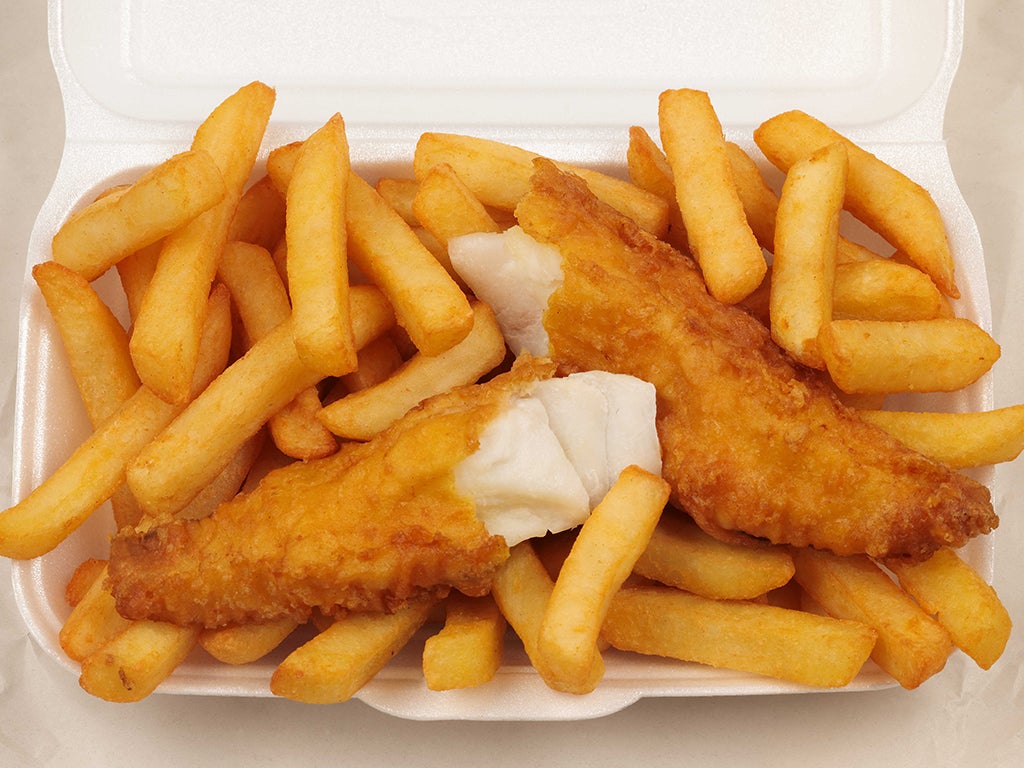Is this the end of fish and chips? Warming seas could spell end of British classic
Researchers at University of Exeter have warned that rapidly warming North Sea temperatures could see haddock and cod migrate north

Support truly
independent journalism
Our mission is to deliver unbiased, fact-based reporting that holds power to account and exposes the truth.
Whether $5 or $50, every contribution counts.
Support us to deliver journalism without an agenda.

Louise Thomas
Editor
Sad news for anyone fond of fish and chips: the traditional British meal is on the way out, thanks to warming sea temperatures.
Our current favourite haddock may be replaced by red mullet and John Dory as the North Sea rapidly warms, researchers at the University of Exeter claimed yesterday.
The research, published in the Nature Climate Change journal, shows that the North Sea has already warmed four times faster than the global average over the past 40 years – and higher temperatures are predicted.
Stock of other popular varieties, such as plaice or lemon sole, may also deplete as newer breeds come to replace them.
“Our models predict cold water species will be squeezed out, with warmer water fish likely to take their place,” co-author Dr Steve Simpson said.
The research, working off long-term data on popular North Sea fish and met Office climate model projections for the coming 50 years, predicated the sea will warm by 1.8 degrees.
“For sustainable UK fisheries, we need to move on from haddock and chips and look to Southern Europe for our gastronomic inspiration,” the senior lecturer in Marine Biology and Global Change added.
Dr Simpson believes that John Dory, red mullet, gurnard, sardines, anchovies, cuttlefish and squid would all become more common in the North Sea – naturally lending themselves to a diet more traditionally associated with Spain or Portugal.
Although some species may cope with the temperature change, most – especially the flatfish varieties, such as cod and haddock – will have to move further north in order to survive.
“Our study suggests that we will see proportionally less of some of the species we eat most of as they struggle to cope with warming conditions in the North Sea,” Louise Rutterford, a postgraduate researcher in Biosciences who also worked on the study, added.
Join our commenting forum
Join thought-provoking conversations, follow other Independent readers and see their replies
Comments